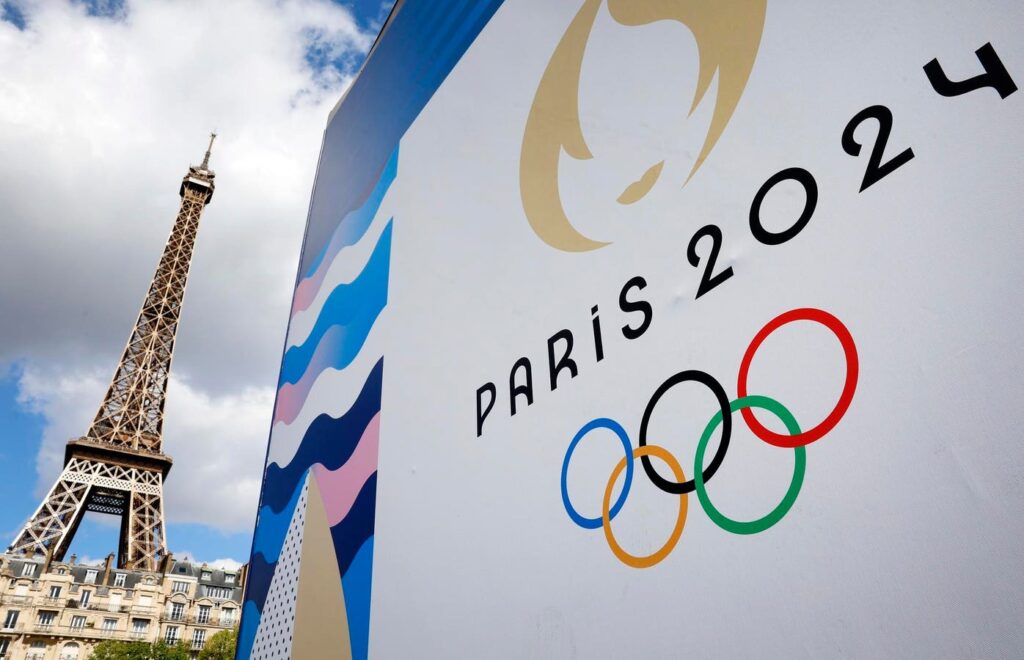Paris is preparing to host the 33rd Summer Olympic Games, which will run from July 26 to August 11. (Photo credit: … [+]
In less than two weeks, the world's eyes will be on Paris, France, as the 2024 Olympic Games begin. Records will be broken, dreams will be realized and some shattered. And some athletes will perform better than they ever imagined. In the age of social media, even the smallest mistakes can be costly, and not just during competition.
The wrong tweet, post, like or share can be very damaging to an athlete. Athletes need to perform at their best not only during competition, but also before and after the competition.
“Like anything these days, anything an athlete posts is going to be seen by millions of people,” warned Adrienne Boucher, the Richard and Helen DeVos Professor of Management at the University of Central Florida.
“These are athletes with national and international followings,” Boucher said. “The International Olympic Committee recently released social media guidelines for the Olympics that try to balance the rights of the Olympics and individual athletes. It's worth remembering that while most athletes won't get in trouble for posting controversial content, it only takes one to do so.”
Boucher points to the actions of Ryan Lochte at the 2016 Rio Olympics, when he and other members of the U.S. swimming team got into trouble after claiming they had been robbed at gunpoint, when in fact they had clashed with security guards and paid them off. The turmoil cost Lochte four major sponsors.
“This was not an inappropriate social media post, but it is a similar scenario where a gold medal-winning athlete behaves inappropriately and suffers serious consequences,” Boucher suggested.
Posting too early
It's common to post something and then regret it. Competitors, especially those who stand out from the crowd, have all the attention on everything they say and do.
“Part of the problem is a result of the way our brains are wired: 'negativity bias' is an innate, rather than learned, cognitive bias that causes us to pay more attention to and remember negative information more easily than positive information,” explains Laura Graham, a professor and public relations expert at North Carolina Central University. “While this bias is helpful because we're more likely to equate negativity with danger or injury that should be avoided, our brains don't readily distinguish between urgent and non-urgent data.”
As a result, we're more likely today to remember one of the stupidest things a celebrity has said or done than everything else, including their time on the podium.
“The economics of the Olympics are also an issue,” Graham says. “In America, the Olympics is a multi-billion dollar industry, with a symbiotic relationship between athletes and corporate and national sponsors. Teams and athletes are sold as representatives of national pride, and are said to be carrying the hopes and dreams of 300 million people. So if an athlete has a bad day, makes a bad decision, says a stupid thing on X or Twitter, the stakes are incredibly high.”
Athletes make mistakes
It's easy to think of Olympians as something close to “superhuman,” but even the “greatest of all time” are human, make mistakes, and can be held to unrealistic standards.
“This is the other side of using social media to build a brand,” Boucher said. “We idolize them and expect them to be great athletes and model citizens, but that doesn't always work out, so they're certainly held to a higher standard than the average person. It's the life they've chosen.”
Of course, athletes clearly represent their own countries and are therefore responsible for how their actions impact their sending countries.
“When you wear USA on your chest, your actions resonate with everyone who sends you out and everyone watching at home,” Graham added. “Charles Barkley has often said he's not a model athlete, but when you're on the U.S. Olympic team, you're representing.”
Finally, let's not forget that many of the players traveling to Paris are not yet of drinking age in the United States, and some don't even have the right to vote, so a false title shouldn't be the end of their professional sports careers.
“If a cultural gaffe or an ignorant blunder marks the end of a 16-year-old on his first trip abroad, then it's not sending the right message,” Graham continued. “The issue is, these players are real people, not fictional characters.”

